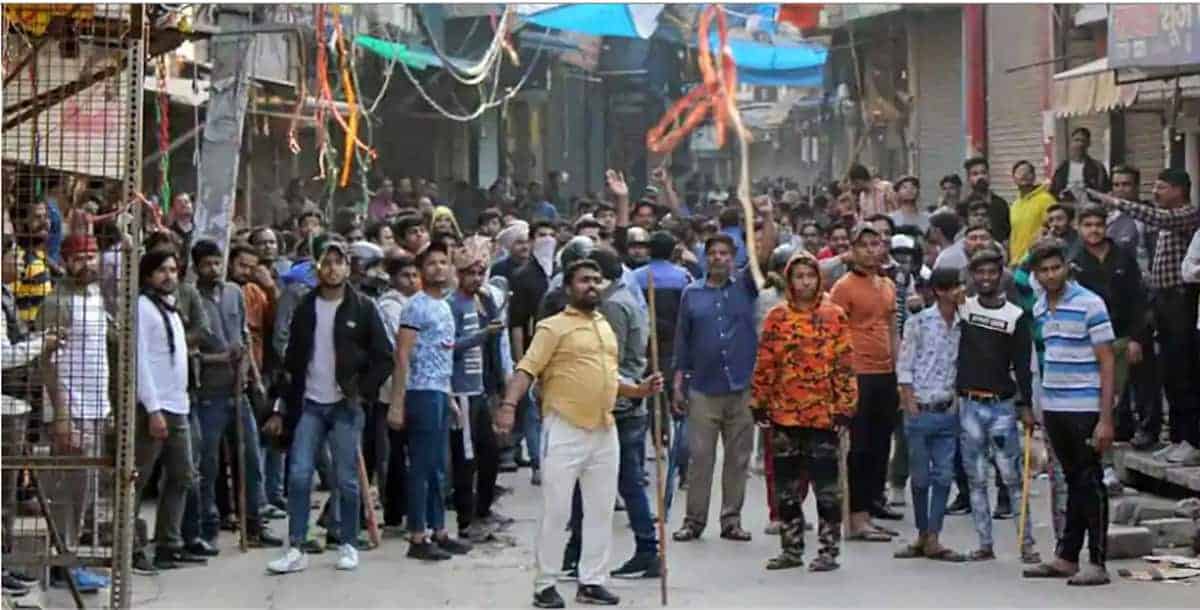As shocking as the outburst of hatred in Delhi has been, with the deadliest religious violence the capital has seen in decades, it cannot be understood either as an unforeseen eruption, nor as the ineluctable expression of centuries-old intercommunal hostility. Instead, the 24 deaths and hundreds of injuries seen as mobs set fire to mosques and businesses and invaded Muslim homes result from the slow accretion of loathing, indulged and fostered by political leaders. They are the latest step along India’s path away from its founding ideals of pluralism and equality, towards intolerance and hate.
The immediate causes of events are the fallout from Narendra Modi’s unjust Citizenship (Amendment) Act, the dangerous rhetoric employed by the ruling Bharatiya Janata party in Delhi’s city elections this month, and the mob incitement by BJP leaders like Kapil Mishra, to violently remove a group of Muslims who were blocking a road in the capital’s north-west to protest against the legislation. Scuffles quickly escalated. But it is clear that many defenceless Muslims were the primary targets and victims. Witnesses described the police simply standing by, joining crowds chanting nationalist slogans, or firing indiscriminately. BJP leaders were reportedly recorded encouraging crowds to chant “shoot the traitors” and accusing the peaceful protestors of being “rapists and murderers”. This is awful but unsurprising.
The BJP’s Hindu nationalism is a politics that rose to power by fomenting violence against vulnerable religious minorities. Given the police’s disgraceful performance, Sonia Gandhi, president of the Congress party, was right to demand the resignation of Amit Shah, Mr Modi’s home minister and close ally – and a man who has himself described illegal migrants from Muslim-majority Bangladesh as “termites” to “throw into the Bay of Bengal”. Mr Modi’s very belated call for “peace and brotherhood” does nothing to compensate for days of silence, nor to veil a career built upon stoking division. He was previously barred from the US over the 2002 pogrom which killed around 1,000 Muslims in Gujarat while he was chief minister there. Though the Supreme Court cleared him of deliberately failing to protect Muslims, his international rehabilitation is mostly due to his subsequent election as prime minister. It is no surprise that Donald Trump, visiting India for the first time as the violence flared, should embrace an authoritarian and nationalist leader. But plenty of others have essentially accepted Mr Modi’s dangerous rightwing populism too.
He has accelerated his agenda since his re-election by a landslide last year. He revoked the special status of Kashmir, the only Muslim majority state, and placed it under lockdown. He pushed through the citizenship act and the National Register of Citizens in Assam, which excluded almost 2 million people. The political opposition is enfeebled. He continues efforts to muzzle civil society. Yet it is fighting back. Indian citizens have expressed their revulsion at the country’s direction. Though many have been disappointed by the Supreme Court’s insipid response to the citizenship act, which many believe is unconstitutional, and its judges’ admiration of Mr Modi, it was scathing this week about police inaction in response to the violence. Delhi’s high court attacked the police commissioner for saying he had not watched videos of inflammatory speeches, and ordered authorities to take action to protect and help riot victims. There is nothing inevitable about India’s current trajectory. But the individuals and institutions who are resisting cannot turn its course without support.

